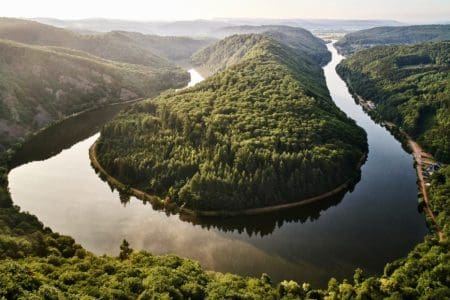The world has changed over the past couple of months – so drastically that many predict it will never be the same again. Change can be bad, but it also can be a force for good. The travel sector now faces a challenge like never before, the question is whether we are prepared to embrace the possibility for positive change in shaping the future of travel.
While not trying to underplay the human tragedy that is unfolding before us, COVID-19 is not the greatest danger to the future of our planet. Plagues have killed thousands if not millions throughout the ages, and the current approach of quarantine is very much a medieval response to such epidemics. The greatest danger to the planet is not a coronavirus but climate change. And how we exit the current pandemic, can influence how we address the challenge presented by climate change.
Will we rush back to the old normal with untimely haste repeating the errors of the past, much like the town planners of London rebuilt the city on the footprint of old after the Great Fire of 1666, which followed the Plague of 1665, condemning the English capital to centuries of pestilence? There are lessons to be learned here.
There is no reason why the strong travel companies, hotels and airlines should not be the ones that adopt a strong ethical approach, and the weak ones those that do not.
Last year, away from Brexit-obsessed Britain, the main issue in the world was climate change. Within the travel sector the No-Fly movement (Flygskram) gained momentum. Even before COVID-19 decimated international travel, countries such as Germany and Sweden reported a decline in flights. A consequence of the global lockdown has been a reduction in the amount of air pollution, in addition to sheep roaming quarantined urban centres.
What will be the future of travel?
The challenge facing both the travel sector and travellers is how to capitalise upon these positive by-products of the global pandemic. Governments across the world are now in an unparalleled position of strength compared with businesses. Countries such as Denmark are leading the way in making bail-out loans conditional upon certain social criteria, such as companies should not have offs-shore tax havens.
Within the travel industry, from policy makers to end user, we can support those businesses that adopt a strong ethical approach with closer ties to the host community and who adopt a strong carbon-neutral or even carbon-positive policy. Single-use plastic free resorts should become the new norm, carbon-offsetting should either become a positive force for good rather than a PR activity or become extinct, airlines should curb their net carbon emissions or go bust.
The theories of Darwin are often applied to economics and business. Over the course of the next year, countless articles will be written about the Survival of the Fittest relating to businesses. But these principles do not simply apply to profit and loss, after all Charles Darwin was no economist himself.
There is no reason why the strong travel companies, hotels and airlines should not be the ones that adopt a strong ethical approach, and the weak ones those that do not.
Through the decisions we consciously take, we can help mould the future of travel industry in the post-coronavirus world. Let’s not repeat the errors of 1666. The travel industry can become more responsible, equitable and sustainable than it was pre-coronavirus. It is the responsibility of all of us to ensure that it does so. After all, this is not a plague that will claim hundreds of thousands of lives that we are talking about, but the survival of the planet.




Good article Mark cheers Wendy xx PP